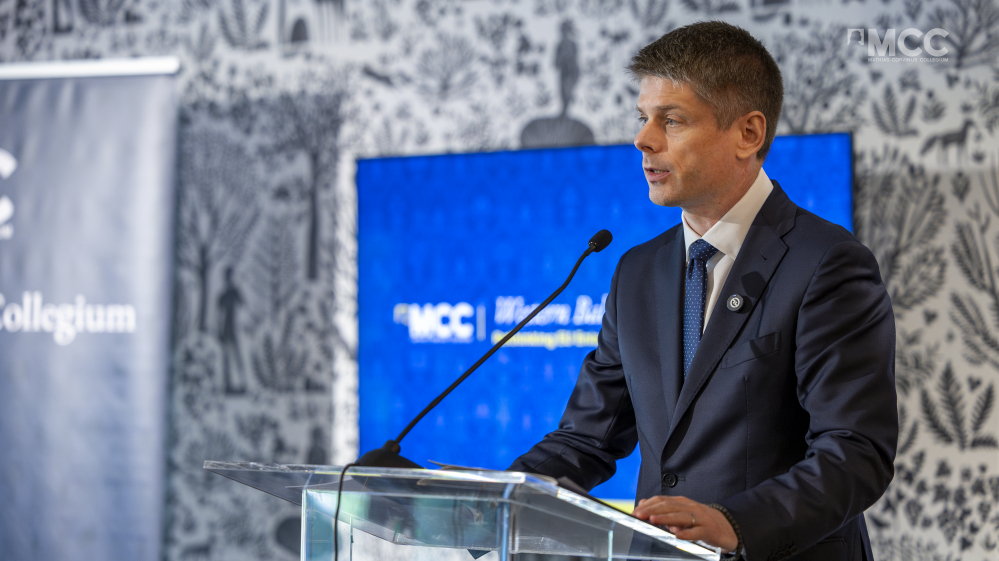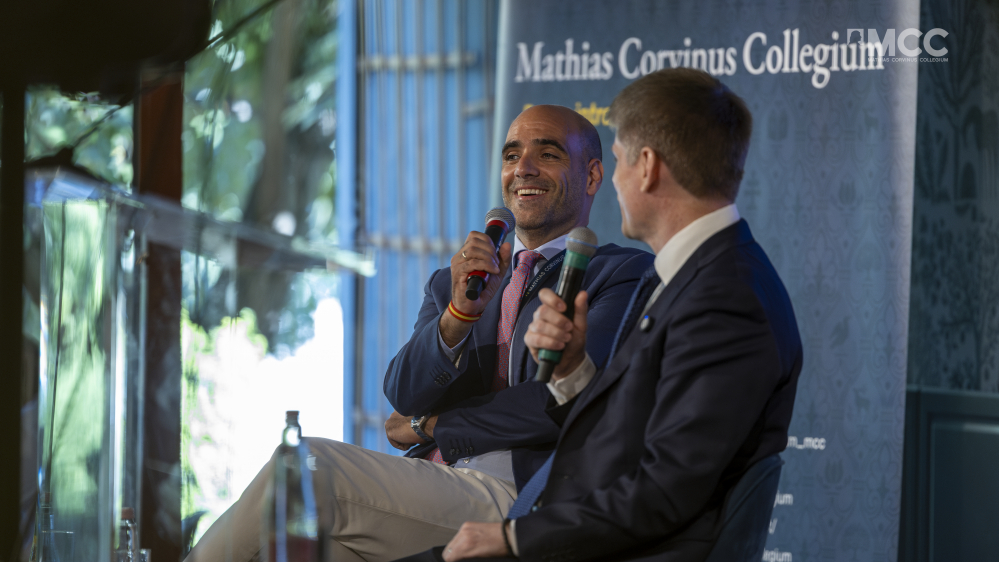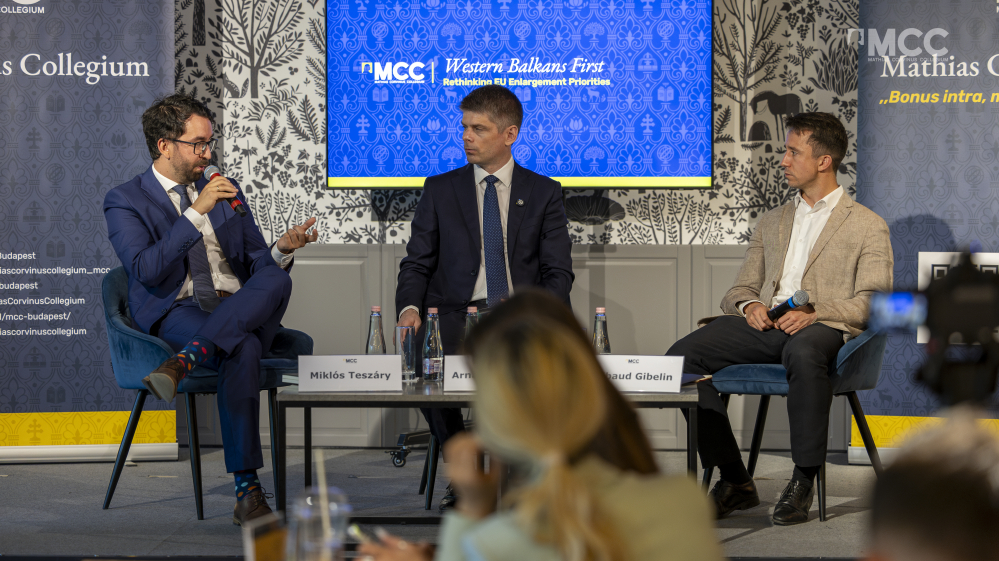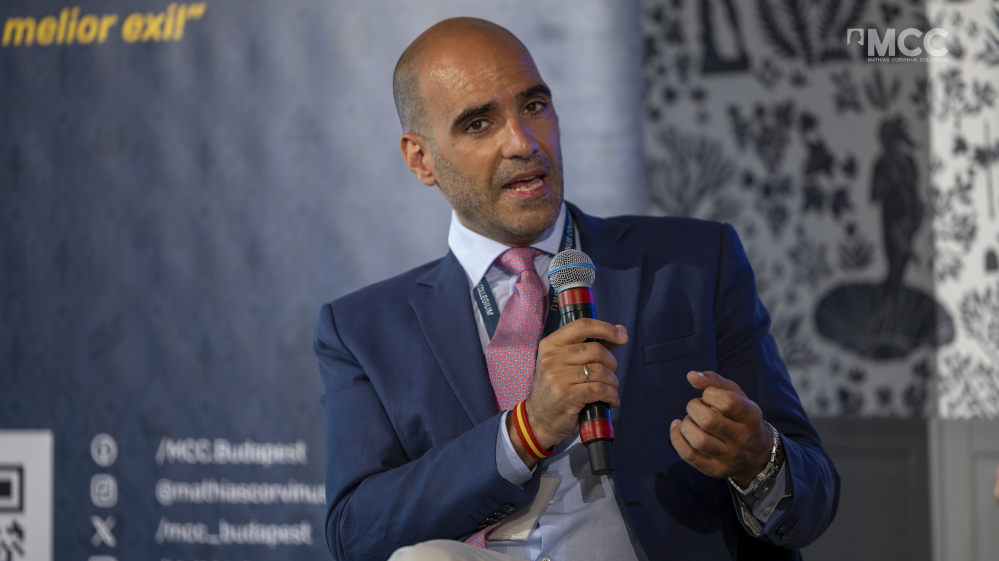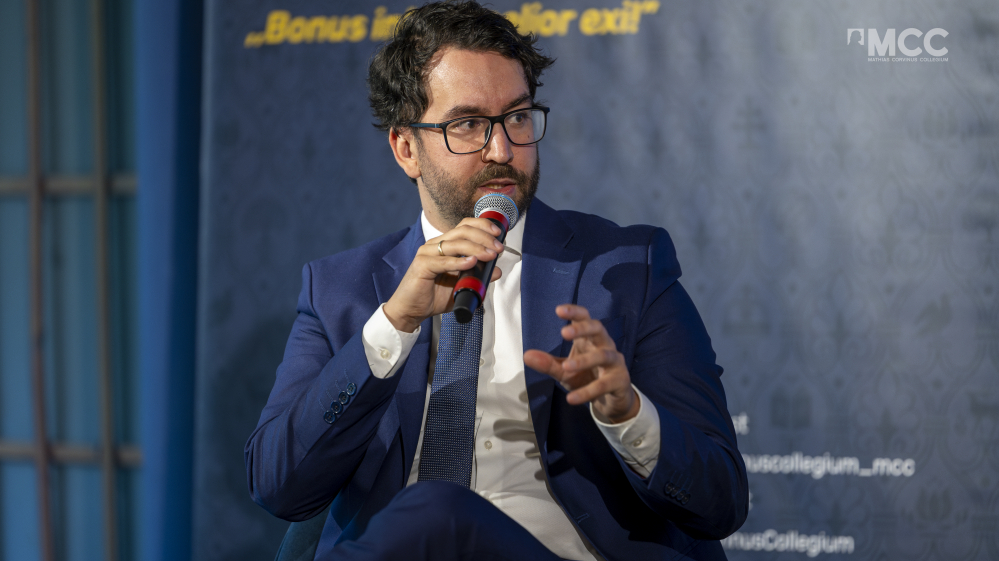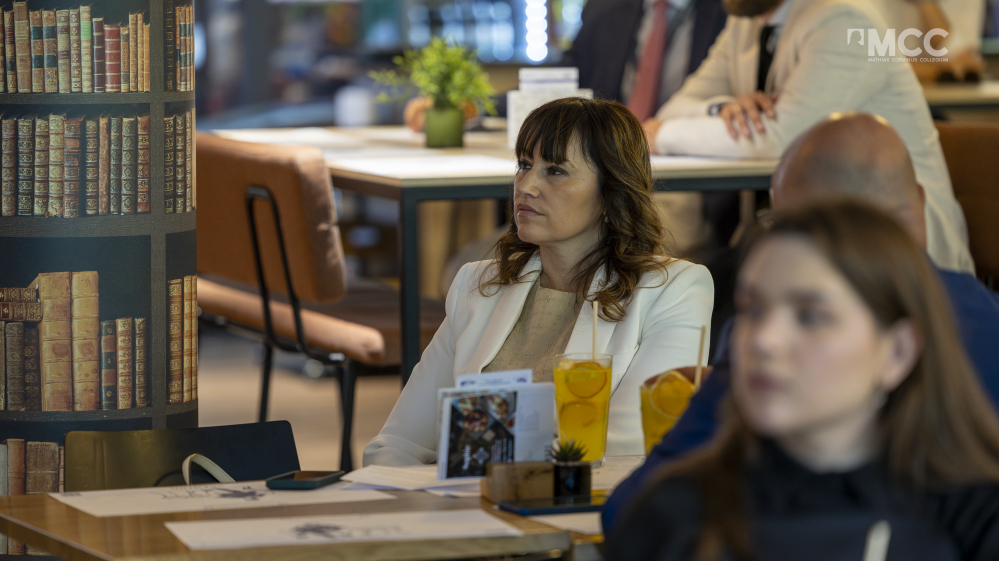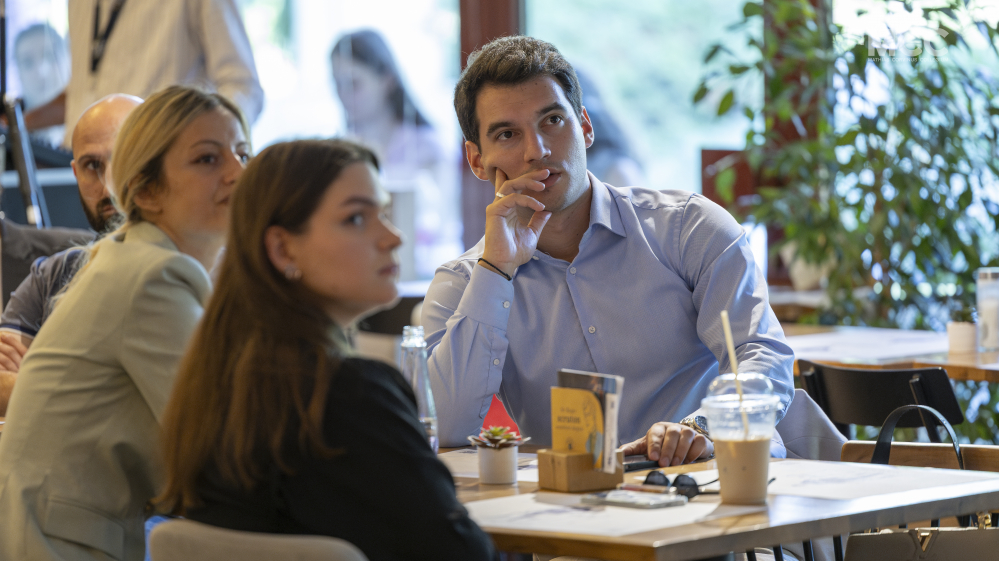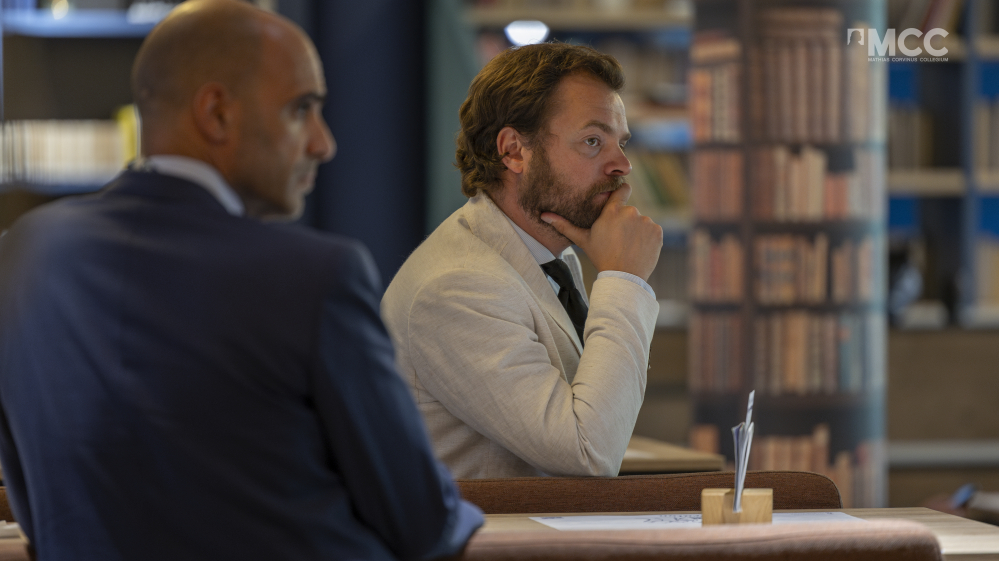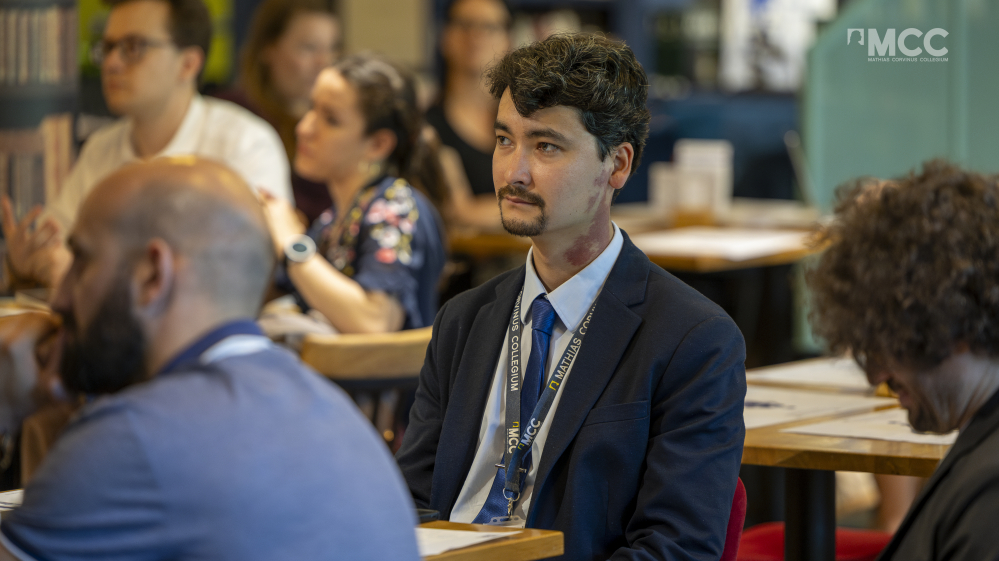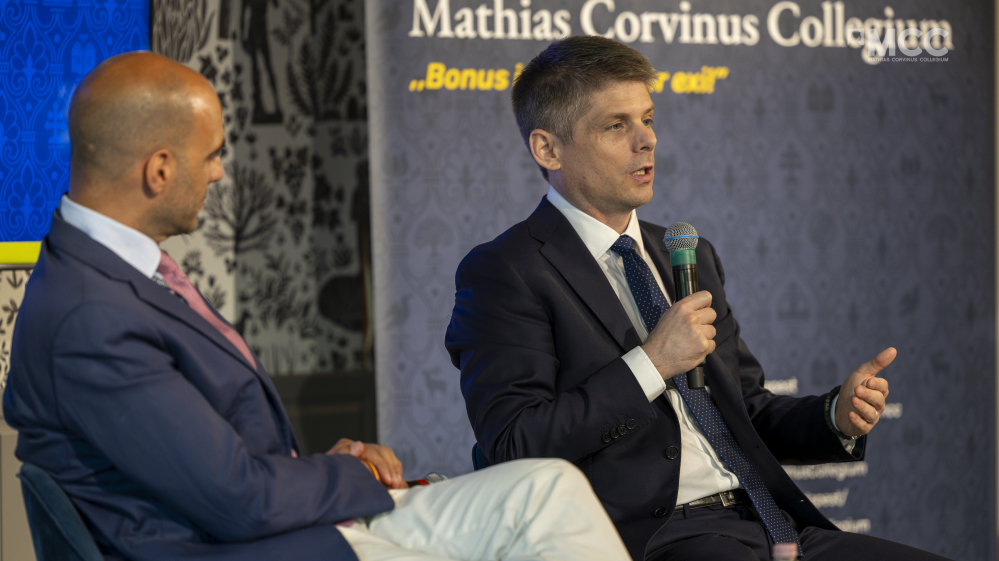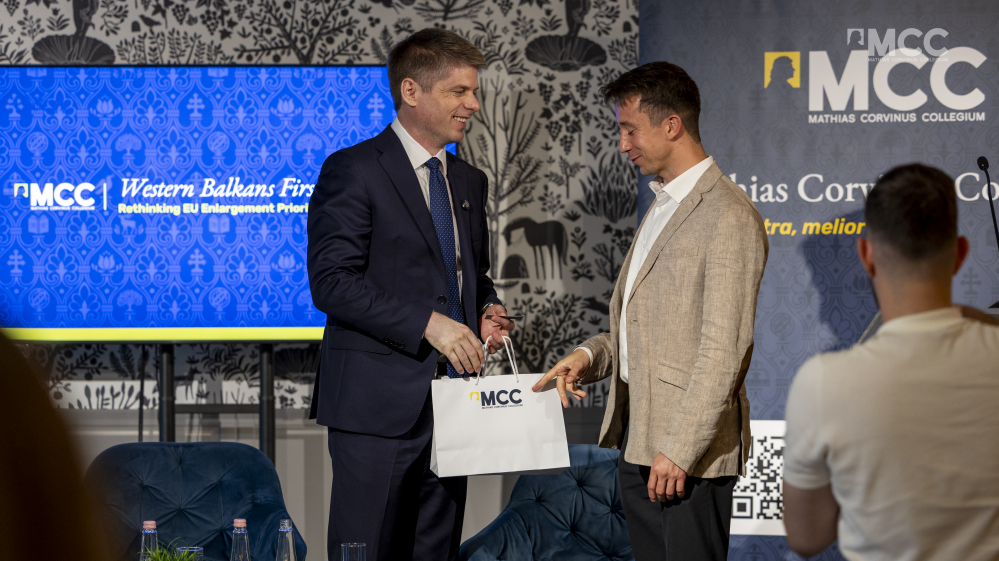Reading time: 2 minutes
The Center for European Studies hosted Arnaud Gouillon, Director of Serbia’s Office for Public and Cultural Diplomacy, for a thought-provoking discussion on EU enlargement through a Serbian lens. The event explored Serbia’s longstanding aspiration to join the EU, regional dynamics in the Western Balkans, and the political double standards shaping today’s accession process.
On June 19th, 2025, the MCC’s Center for European Studies welcomed Arnaud Gouillon, Director of the Office for Public and Cultural Diplomacy of Serbia, for a conversation on European enlargement from a Serbian perspective. Born in France and now a Serbian citizen, Mr. Gouillon began by highlighting the deep historical and cultural ties between Serbia and Hungary, as well as the strong political partnership between Prime Minister Viktor Orbán and President Aleksandar Vučić. He emphasized the Western Balkans’ enduring role in Europe’s history and resilience through 20th-century tragedies, while warning that the EU’s current fixation on “woke” ideology risks neglecting real challenges and undermining cultural stability.
The event was honored by the presence of the Ambassador of the Republic of Serbia to Hungary, Her Excellency Aleksandra Đurović, and Minister Counsellor Dejan Milosavljević.
The program opened with a one-on-one interview between Mr. Gouillon and Rodrigo Ballester, Head of the Center. When asked whether Serbians still aspire to EU membership, Mr. Gouillon noted that enthusiasm remains despite 25 years of delays caused by Brussels’ shifting political priorities and bureaucratic hurdles. He quipped that early advocates of accession may be pensioners by the time it materializes. Progress has been made—22 of 35 accession chapters have been opened—but Serbia continues to face demands for “clear borders” and unresolved tensions over Kosovo, standards that do not appear to apply equally to countries like Ukraine, which has advanced rapidly toward membership.
Mr. Gouillon stressed that Serbia’s goal is not to facilitate emigration to Western Europe, but to encourage return migration and nation-building—by creating a prosperous, stable homeland for Serbians worldwide.
The second half of the event featured a panel discussion with Mr. Gouillon; Miklós Teszáry, researcher at MCC-MKI’s Center for Geopolitics; and moderator Thibaud Gibelin, a French historian and MCC Visiting Fellow. Topics included the region’s historical position between Moscow, Vienna, and Istanbul; the Western Balkans’ potential for pragmatic cooperation; China’s growing role; and the ongoing Kosovo issue.
As enlargement debates in Brussels risk becoming performative, the event underscored the real needs and aspirations of candidate countries. While the EU turns its attention eastward, the discussion served as a call to prioritize long-standing candidates—such as those in the Western Balkans—with deep-rooted ties to Europe in history, culture, and security.
